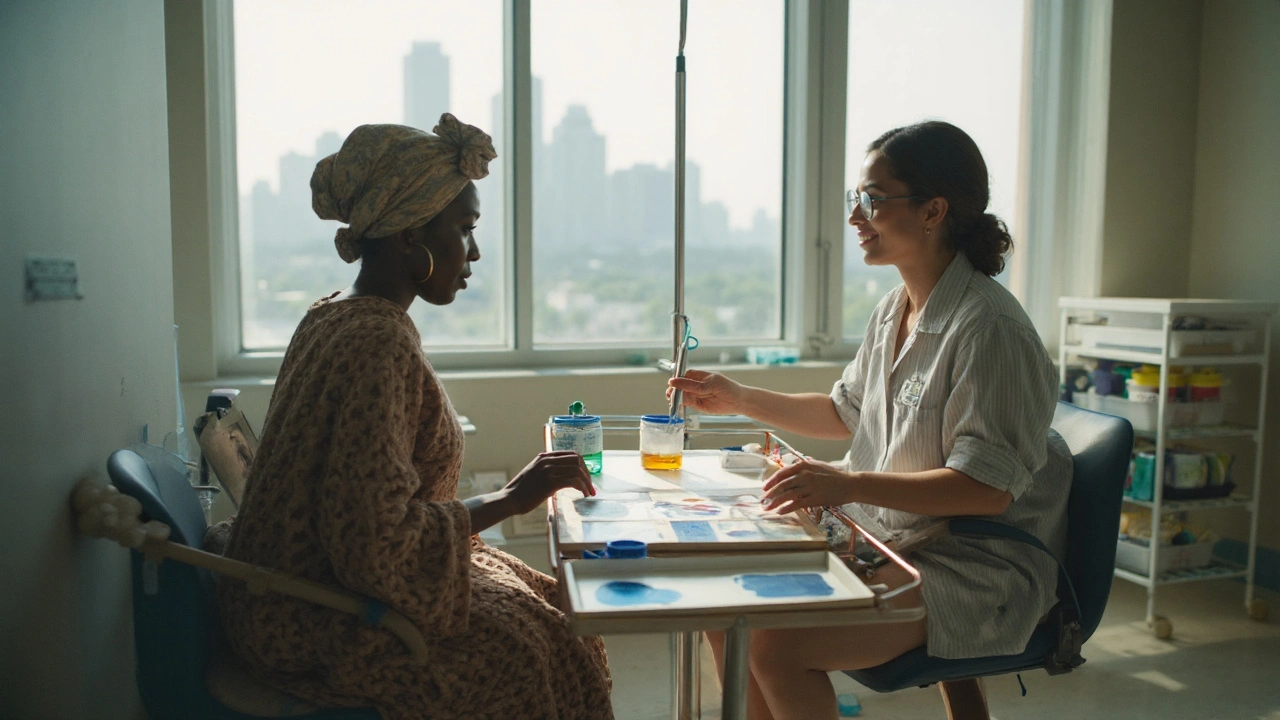Integrative Oncology – What It Is and Why It Matters
If you or a loved one are fighting cancer, you’ve probably heard the term “integrative oncology.” It’s not a new kind of medicine; it’s simply adding proven natural strategies to standard treatments like surgery, chemo, or radiation. The goal is to help your body tolerate aggressive therapy better, manage side effects, and improve overall wellbeing.
Think of it as a team sport. Your oncologist runs the main play, while nutritionists, acupuncturists, psychologists, and herbal experts bring extra support. When everyone works together, patients often report less fatigue, reduced nausea, and a stronger sense of control.
Common Complementary Tools Used in Integrative Oncology
Nutrition therapy: A diet rich in colorful vegetables, lean protein, and healthy fats can boost immune function and keep weight stable during treatment. Many clinics suggest specific meal plans that match the type of chemo you’re getting.
Mind‑body practices: Techniques like meditation, guided imagery, yoga, and tai chi have been shown to lower stress hormones. A few minutes a day can translate into better sleep and less anxiety before appointments.
Acupuncture and acupressure: These methods are popular for easing chemotherapy‑induced nausea and managing pain. Certified practitioners use thin needles or pressure points, and most patients notice relief within a few sessions.
Herbal supplements: Some herbs, such as ginger for nausea or milk thistle for liver support, have solid research behind them. However, not all supplements are safe with chemo drugs, so always check with your oncology team before adding anything.
How to Add Integrative Care Safely
The biggest mistake people make is starting a new therapy without telling their doctor. Some natural products can interact with chemotherapy or radiation, reducing effectiveness or causing harmful side effects. Bring a list of everything you’re taking – vitamins, teas, essential oils – to each oncology visit.
Ask your oncologist if the clinic has an integrative program or a referral network. Many major cancer centers now have dedicated integrative departments that screen therapies for safety and evidence. If you need to go outside the system, look for practitioners who are board‑certified in their field and experienced with cancer patients.
Start small. Try one approach at a time – maybe a 10‑minute mindfulness app before chemo, or a weekly yoga class – and track how you feel. Journaling side effects and mood changes can help you see what works best.
Remember, integrative oncology isn’t about replacing standard care; it’s about enhancing it. By combining the strengths of modern medicine with carefully chosen natural tools, you give your body a better chance to fight back while keeping quality of life in focus.
- Archer Pennington
- 14
Art Therapy for Cancer Patients: Benefits, Evidence, and How to Start Today
Real benefits of art therapy during cancer care-what it helps with, how it works, step-by-step ways to try it, and what the evidence actually says.
Read more
